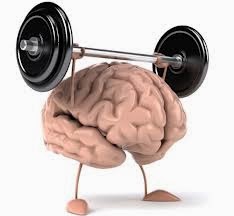Dear Bloggers.
The effects of Complex PTSD can
disrupt lives and devastate romantic relationships. If your partner is living
with this condition, your support can help them heal trauma through treatment.
Learn your responsibilities in your romantic partner’s treatment and help them
begin the journey to recovery today.
I took some time for myself to reflect on my career and what was still a
dream for me. And I got my driver’s license for the bus and took off on my new
job as bus driver through a temps office. We were a good team together as I was
more at home we divided the jobs with the kids and the household jobs. She had
build a career as a Call Centre Agent and was hired by the biggest phone
company who just had started on internet and television through the internet.
She loved her job and was always happy to help customers with their problems
during the years the Company was pressing more and more towards targets and numbers.
Not always you can solve a problem in five minutes. She was fully focused on
fixing it directly. Very service minded towards the costumers care. Until they
had totally smashed her brain in the beginning of 2014. She was suffering from
things like not being able to pick up the phone and talk in full sentences. The
manager she had was a real A-hole and a bastard towards her. It still makes me
angry that you can be such a low life to destroy a human being with no reason.
We went to the doctors office and were send to a psychologist to get professionally
help, it turned out that she had a variant of PTSD known as Complex PTSD. While
PTSD, a mental illness that causes severe recurring anxiety and fear, may come
about as a result of a single traumatic event of relatively brief duration such
as a serious accident or a violent assault the trauma that triggers the onset
of complex PTSD is prolonged and repeating, lasting for months or years.
Examples of such trauma include long-term physical, sexual, or emotional abuse,
a lengthy captivity, or, as in my wife’s case, a struggle to survive. Complex
PTSD, also known as C-PTSD, is harrowing and devastating for the sufferer; the
effects of this condition may also create stress for their romantic partner.
Comprehensive
and careful professional treatment for C-PTSD is necessary for recovery. As
this condition may create trust issues and inhibit the formation of
interpersonal bonds, treatment may also be needed to heal romantic
relationships damaged or destroyed by the painful effects of complex PTSD. If
someone you love has C-PTSD, your support and empathy can aid in their recovery
and repair your strained relationship.
Complex PTSD shares a common base of symptoms with PTSD, including flashbacks, nightmares, anxiety, and self-destructive thoughts or behaviors. In addition, C-PTSD features a number of symptoms being specific to the condition, including the following:
- Difficulty
regulating emotions, which may take the form of severe anger, sadness, or
suicidal thoughts.
- Interruptions in
consciousness, including periods of dissociation and difficulty recalling
events surrounding the trauma.
- Self-perception
issues, such as strong feelings of shame, guilt, or helplessness.
- A distorted
perception of the perpetrator of the trauma. Those with C-PTSD often have
an unhealthy preoccupation with their former tormentor, seeing them as
unstoppable and all-powerful. Because someone with C-PTSD likely
experienced a trauma in which survival hinged on their interpersonal
connection to the perpetrator, they may still be obsessed with that
relationship long after the end of the traumatic situation.
- A loss of faith
and feelings of hopelessness.
- Difficulties with
interpersonal relationships, such as an inability to trust people or a
nonstop search for someone to rescue them.
Complex PTSD can devastate your Romantic Relationship
If your romantic partner suffers from the effects of complex PTSD, it’s probably taking a heavy toll on their life and well-being in multiple areas. Your romantic relationship may be one of those areas. C-PTSD may make your partner unable to fully trust anyone, even those who are closest to them and that could include you. Your partner may also feel isolated, as though no outsider can understand what they’ve been through; as much as you care about their physical and emotional health and sincerely wish to help them heal.
If someone you love is receiving treatment for complex PTSD, you may be
able to aid in their recovery. Make an effort to learn all you can about your
partner’s condition the causes, the symptoms, the effects, the treatment and be
prepared to approach them with openness, understanding, and a lack of judgment.
The Old
Sailor,






.jpg)















